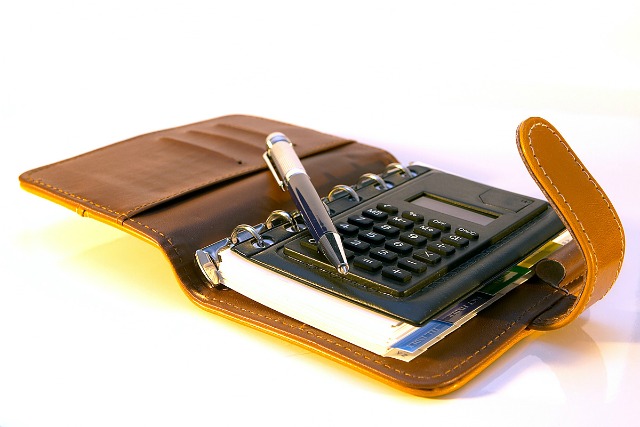If you are serious about becoming a location independent entrepreneur, then tax and earning money around the world is a topic that you will need to be well versed in. It’s unfortunately not the most exciting of topics, but very useful to know nonetheless – I’ve had a few people contact me about this recently, so I thought it was about time to cover it!
And like anyone should when discussing taxes, I need to add the disclaimer that while the information I provide below is well-researched and relevant, you should always obtain professional advice before embarking on any kind of tax change, as your situation may require particular knowledge or consideration.
The tax waters of blogging can be particularly murky, and depending on the country where you are a citizen, the rules can differ greatly. Unfortunately I am not able to cover every single country in this post, so I’m going to cover the US and UK as the majority of bloggers seem to hail from these countries – and don’t be fooled if you are a US or UK citizen sipping cocktails on the beaches of Thailand somewhere, unfortunately you are still accountable to your home country’s tax laws no matter where you are in the world!
What Kind Of Blogger Are You?
Probably the most important decision you have to make here is whether you categorize yourself as as a ‘hobby blogger’ or ‘professional blogger’, as each of these have a very different implication for your tax affairs.
Hobby bloggers are generally those with day jobs who may earn money from blogging, but don’t fully support themselves with their blogging income. Their responsibilities with the tax man will be much less than a professional blogger, but you are still required to report your income to the relevant authorities – the IRS in the USA and HM Revenue in the UK.Herein lies the ethical issue, as many people don’t earn a lot from their blog and their advertisers will most probably be located overseas, so it can be easy to not report this income at all and never be found out. I’m not going to comment on this other than to say be careful whatever you choose! Hobby bloggers are able to claim expenses for running their site, however you cannot carry over expenses to the next year. For example, if you have $200 expenses and $100 income for one year, you cannot carry over the $100 of expenses to claim in the following year.
Professional bloggers are just that – their blog is their sole income (or a large part of it) and they run their site like a functional business. As with the hobby bloggers, you need to report your income, but in this case I would absolutely recommend being 100% truthful and honest with your income to the authorities – you may be able to get away with not reporting your blogging income for some time, but if you want to make your business successful and grow, you are better off going through the pain and inconvenience of a full tax strategy earlier rather than having it bite you later. One day your wandering the streets of Istanbul, the next you’re in chains and an orange jumpsuit – not cool, so just make sure you think about the consequences should you decide to dance with the tax devil!
The good thing about being a professional blogger is that you can carry over expenses into the next financial year so that you can minimise the amount of tax you will have to pay.
With regards to expenses, you are able to claim for anything directly related to your site – internet connection, laptops, power, software and eBooks or courses. If you are a travel blogger then yippee, you can claim pretty much all of your travel expenses! You may even be able to claim rent and other living expenses.
Tracking Your Progress
I would highly recommend that when you start blogging you start a simple Google Doc to track all of the money you spend on your site and also the income. I also include the details for each advertising deal I make including the month, contact details of the advertiser and then add a reminder to my calendar for when it is due to renew. This tracking helps you plan your year and can also aid in predicting the months you may earn more in relation to others.
Most of the payments you receive as a blogger will be done through PayPal without invoices, so keep track of these and save all of the PayPal emails in a folder just in case. For larger amounts where companies require invoices, you can download a free template from the web and use this each time. Make sure you save a copy of each invoice with the payment details and file these away with your spreadsheet. Trust me, the more organised you are at the beginning, the less pain later on!
Tax can seem like an annoying necessity sometimes, but it doesn’t have to be too painful – educate yourself and be organised, and you’ll be fine. Thankfully we live in a global existence these days so there are lots of companies out there to help with your taxes no matter where you are in the world. If you are looking for some sound advice, I would recommend the Location Independent Tax and Finance Guide by Marion Harrington. Not only is a tax specialist, but she’s also a location independent entrepreneur – so if anyone is going to be able to help, it’s Marion! Definitely check out her site for some more information!
Happy accounting!
Photo Credit – Thanks to OmirOnia (sxu license)
Previous Post – Photo of The Week -The Wild Monkeys Of Galwar Bagh



Thank you for writing this blog post. Lots of great information. I’m not yet ready for blogging to become my income, but it’s a thought. It’s good to know this kind of stuff upfront.
Thanks Pamela, all the best with it!
Great post! A lot of people don’t consider this stuff until tax time rolls around.
Thanks for an inspirational blog. I am considering following in your foot steps…and I have been thinking: Is it possible to “dissapeare” in the world?
Not that I dont want to pay my taxes – I have actually always done that without any problems, because I think I get good value for the money where I live, but more for the principle of officially dissapearing for a period of time. Of course I would need a bank account and a credit card, but I am sure, it is possible to find a corner of the world, where I can find a spot to live without the authorities asking too many questions, and where I can get an address.
Your write:
unfortunately you are still accountable to your home country’s tax laws no matter where you are in the world!
But what if I emmigrate to another (and cheaper) country, where the tax is lower and where my country does not have an agreement of exchanging information about income….?
Best wishes
Christian
Hi Christian, good question! I am by no means an expert on this matter, but I know that this certainly is possible, and you may well be able to dodge the authorities, however I would just make sure you are willing to face the consequences should things come back to haunt you! Im not sure what means agencies like the IRS use to find people who haven’t payed taxes for years, but I guess if you are ‘awol’ overseas then they cant do much to find you! I would definitely do some more research on this, good luck!
Christian – good luck finding a country like that! And even if you do, how long will that last?
I have an alternate solution for you. First, lower your expenses. Get rid of your stuff, your debt. Now you need very little income, and this will drop you into a minimal tax bracket. Start a hobby business, but try to make it into a real business. If you make a profit at least 2 out of 5 years, you can deduct expenses even if they are higher than your income.
If they really want to find you, they can and will. And if they don’t want to, why hide?
Great advice Glenn!
Seems like you can write off enough expenses from hosting to software to the home office, to shelter a great amount of your income weather you are a professional blogger or a hobby blogger.
Thanks Nicole! I’m setting up two location independent businesses and am working on a tax plan before we bring in an income. What I’m struggling with as a US Citizen traveling the world is being able to set up my “Tax Home” so I can deduct business travel expenses. Currently the IRS sees me as an itinerant therefore never leaving “home” for business, so no travel deductions are allowed. As I travel FOR my businesses, I’m looking for a way to do this. The link to Marion’s book isn’t working for me, do you have any advise or can you send me in the direction to find out? Thanks so much.